The average cost of Prostate Cancer Treatment in Herzliya approximately starts from USD 10000
Treatment cost
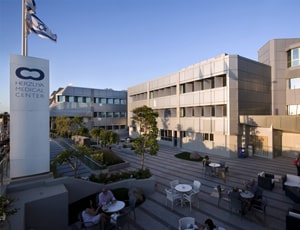
Apart from in-detail treatment procedures available, Herzliya Medical Center located in Herzliya, Israel has a wide variety of facilities available for International Patients. Some of the facilities which are provided by them are Accommodation, Airport Transfer, Interpreter, SIM, TV inside room. Also listed below are some of the most prominent infrastructural details:

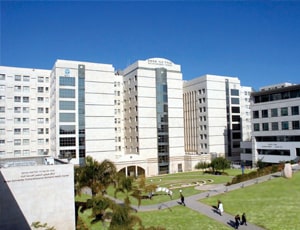
Rabin Medical Center located in Petah Tikva, Israel is accredited by JCI. Also listed below are some of the most prominent infrastructural details:
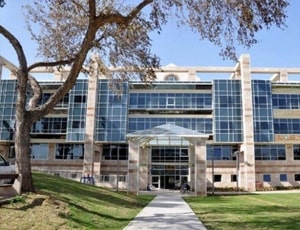
Kaplan Medical Centre located in Rehovot, Israel is accredited by JCI. Also listed below are some of the most prominent infrastructural details:
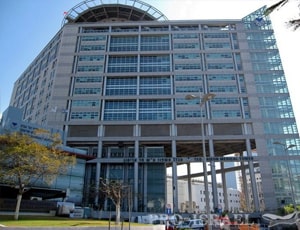
Tel Aviv Sourasky Medical Center -Ichilov Hospital located in Tel-Aviv, Israel is accredited by JCI. Also listed below are some of the most prominent infrastructural details:
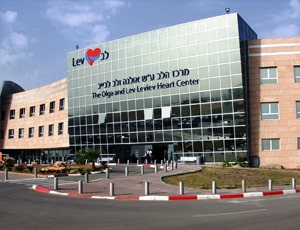
Sheba Medical Center located in Tel-Hashomer, Israel is accredited by JCI. Also listed below are some of the most prominent infrastructural details:
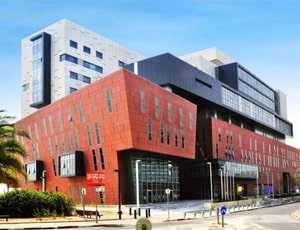
Assuta Hospital located in Tel-Aviv, Israel is accredited by JCI. Also listed below are some of the most prominent infrastructural details:
The prostate is a gland in the male reproductive system, which makes fluid that forms an essential part of the semen. Prostate cancer starts when cells of the prostate glands begin to grow abnormally
Prostate cancer is one of the leading cancers in men above the age of 60. In most of the cases, it is slow growing and may even go undetected and do not cause any problem. However, in some cases, it could be aggressive and cancer cells can spread to other parts of the body (metastatic prostate cancer)
Prostate cancer is a very slow growing disease and starts with tiny alterations in the shape and size of the prostate gland cells. The prostate cancer risk increases with age and it is rarely observed before the age of 40. That is the main reason why many men die of old age, without ever knowing that they had prostate cancer.
There is no direct prostate cancer causes. However, there are some factors that can increase the risk of prostate cancer, including the following:
Usually, prostate cancer means the cancer of prostate gland cells called prostatic intraepithelial neoplasia (PIN). Almost all the prostate cancers are adenocarcinomas, but there are some other types of prostate cancer as well, including the following:
Based on how abnormal the patterns of cancer cells look, prostate cancers are classified as:
There are no warning signs of prostate cancer. The symptoms of metastatic prostate cancer usually appear first in the region that the cancer cells have invaded.
After cancer causes the prostate gland to swell, the following signs of prostate cancer may be experienced:
In prostate cancer stages, the following symptoms may also be there:
Treatment for prostate cancer can be divided into early stage and advanced stage. Your doctor will choose the best suitable treatment for you, depending on the stage and classification of prostate cancer, your age, and overall health status. Although, your feelings, expected lifespan, and your opinion will play a major role in choosing the right kind of treatment.
The most common treatment options for prostate cancer include the following:
Watchful waiting or active surveillance
No immediate treatment is carried out, but the patient is followed up at regular intervals to see the progression of the disease. This method is used in elderly patients with short life expectancy and in case of an early disease.
The main type of prostate surgery is called radical prostatectomy. In this, cancerous tissues are removed by a surgical operation. A long cut in the abdomen is needed in this surgery, depending on the extent and stage of cancer.
However, a keyhole surgery for prostate cancer using a laparoscope or robot is also available. These treatments have good success rates but may result in certain long-term side effects such as sexual dysfunction, narrowing of the urethra, and urinary incontinence.
High-intensity beams are used in this treatment to destroy the cancer cells in the prostate. Radiotherapy can be administered via needles implanted into the prostate, under ultrasound guidance or as an external beam. Radiotherapy can be used after surgery if the resection of cancer tissue has not been completed.
There are two types of radiotherapy for prostate cancer:
In this, the radiation beams are shaped so that the region where they overlap is as close to the same shape as the organ that requires treatment. It minimizes healthy tissue exposure to radiation.
In this, the beams with variable intensity are used. It is an advanced form of conformal radiotherapy. It is usually delivered with the help of a computer-controlled linear accelerator.
Hormone therapy involves the use of medications that suppress testosterone levels. They are used as primary treatment and in advanced cases or Stage 4 prostate cancer.
Chemotherapy is a kind of advance drug treatment in which strong medications are used to kill the cancer cells and prevent it from spreading. It is used when the prostate cancer is not controlled by hormonal treatment. Chemotherapy is selected only for treatment of Stage 4 prostate cancer and when the patient can cope with it.
This treatment uses extremely cold temperatures to freeze and destroy cancer tissues in the prostate. Cryotherapy is the best option for treating recurrent prostate cancer, especially if initial radiation therapy did not kill enough cancer cells. The surgeon inserts an ultra-thin metal probe or needle into the prostate gland, from which a freezing liquid, such as liquid nitrogen or more commonly, argon gas, is infused into the prostate gland.
Some treatments such as radiofrequency and high intensity focused ultrasound (HIFU) are used to treat early prostate cancer or when the patient is not fit for a major surgery.
Ask your healthcare adviser for the best multiple options and choose the one that meets your expectations
The minimum cost of Prostate Cancer Treatment in Herzliya is about $10000. Many multispeciality hospitals in Herzliya that are JCI certified are approved and most sought after for treating international patients with Prostate Cancer Treatment.
The Prostate Cancer Treatment package cost in Herzliya varies from one hospital to another and may offer different benefits. The cost quoted by some of the best hospitals for Prostate Cancer Treatment in Herzliya generally covers the pre-surgery investigations of the patient. The Prostate Cancer Treatment package in Herzliya includes the fees of the surgeon, hospitalization and anesthesia as well. Stay outside the package duration, port-operative complications and diagnosis of a new condition may further increase the Prostate Cancer Treatment cost in Herzliya.
There are several best hospitals for Prostate Cancer Treatment in Herzliya. Some of the most renowned hospitals for Prostate Cancer Treatment in Herzliya include the following:
While the speed of recovery may vary from patient to patient, they are still required to stay for about 17 days after discharge. This period is important to conduct all the follow-up tests to ensure that the surgery was successful and the patient can go back to the home country.
Herzliya is undoubtedly one of the best cities for Prostate Cancer Treatment in the world. It offers the best medical expertise and good patient experience at an affordable cost. Some of the other top destinations for Prostate Cancer Treatment include the following:
Apart from the cost of Prostate Cancer Treatment, the patient is also required to pay additionally for daily meals and guest house accommodation. The per day extra expenses in Herzliya per person are about 75 USD.
After the Prostate Cancer Treatment surgery takes place, the average duration of stay at the hospital is about 4 Days. The doctors team review the patient's recovery during this time with the help of blood tests and imaging scans. Once they feel that everything is on track, the patient is discharged.
There are more than 1 Hospitals that offer Prostate Cancer Treatment in Herzliya. These hospitals have the required infrastructure and a decided Prostate Cancer Treatment unit where renal failure patients can be treated. Apart from good services, the hospitals are known to follow all standard and legal guidelines as dictated by the local medical affairs body or organization.
Some of the most sought after doctors for Prostate Cancer Treatment in Herzliya are: